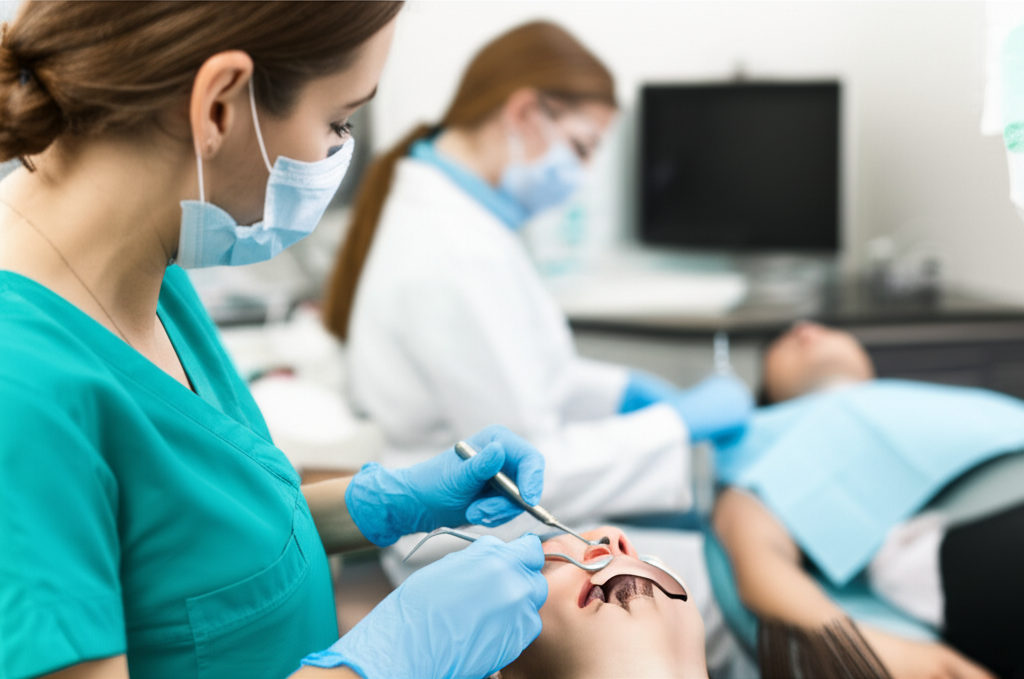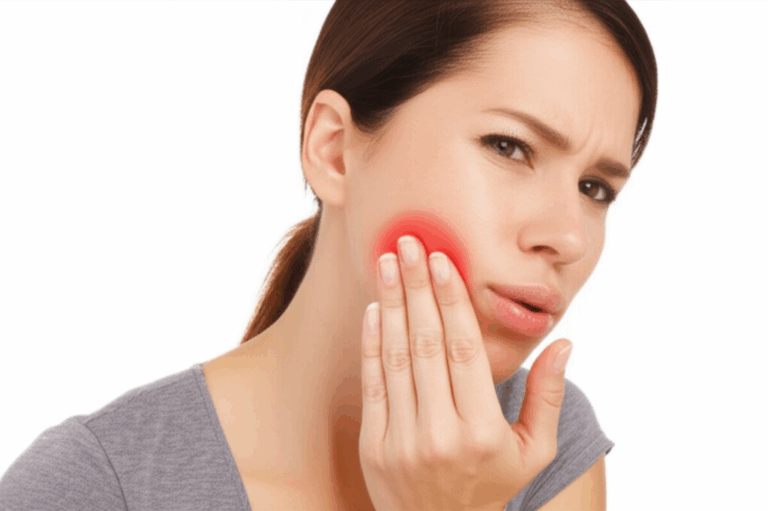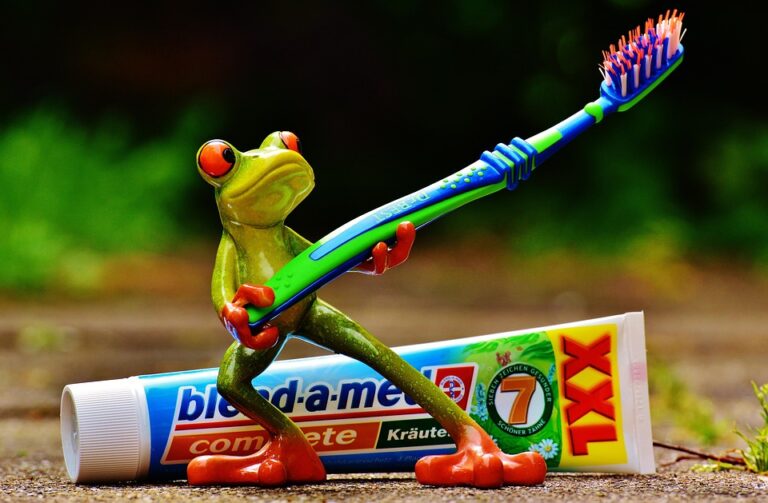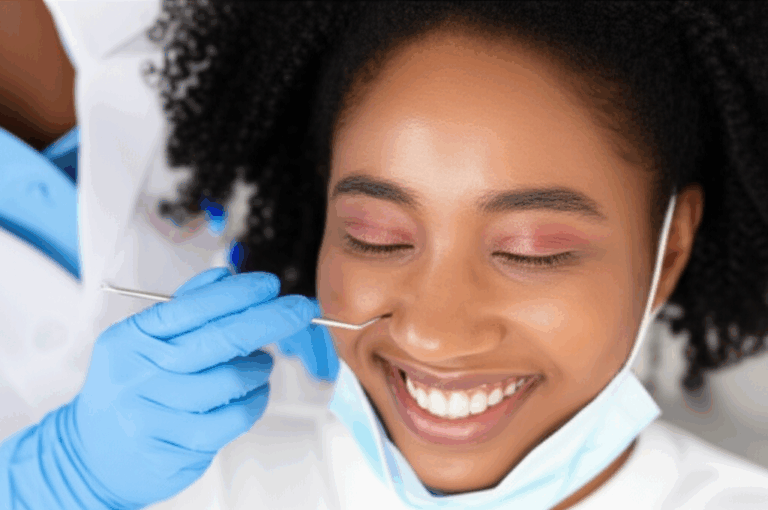
RDH to DDS: The Definitive Guide to Becoming a Dentist from a Dental Hygienist
Are you a dental hygienist thinking about becoming a dentist? This guide will give you all the answers you need. You’ll find out if it’s possible, how to do it, and whether it’s the right move for you. Get ready to take your dental career to the next level!
Table of Contents
Can a Dental Hygienist Become a Dentist?
Yes, a dental hygienist can become a dentist. It’s a path lots of people have walked, and it’s both hard and worth it. If you already work as a registered dental hygienist (RDH), you probably already know how to help patients and use many of the tools dentists use.
Why is this guide worth your time? Because I’ll walk you through every step—from school work to the real stories of people who made it. I’ll also share about the hard parts and the good parts, so you get the full story.
Let’s get started!
Why Should a Dental Hygienist Become a Dentist?
Do you ever ask yourself, “Why keep working as a hygienist when I could do more as a dentist?” I asked myself that too.
Here’s why you might think about making the switch:
- Make a Bigger Difference: Dentists repair teeth, bring back smiles, and can even spot serious illnesses. You can help people more and be in charge of their care.
- Make More Money: The average dentist salary is about double what hygienists make. The U.S. Bureau of Labor Statistics says hygienists earn around $87,500–$90,000 a year, and dentists bring home $170,000–$190,000.
- Try More Jobs: You could run your own clinic, work in a hospital, teach at a dental school, or specialize in things like braces, oral surgeries, or making new teeth.
- Learn and Grow: If you’re bored or want to do more, becoming a dentist gives you a lot of new things to learn.
But remember, this path takes years, lots of work, and costs a lot.
What Do I Need to Go From RDH to DDS?
So what’s stopping you right now? Here’s the main things you’ll need to do:
School
Most dental schools want you to have a bachelor’s degree or a bunch of college science classes. If you just have an associate degree in dental hygiene (ASDH), you might need some more classes.
Required Courses
You’ll need classes like biology, chemistry, organic chemistry, physics, maybe biochemistry or math. Your GPA is important—most people who get in have about a 3.5 to 3.7 GPA.
Dental Admission Test (DAT)
This is a tough test with lots of science. Most dental schools want scores around 20–21 on the main parts.
Application
You’ll use the American Dental Education Association Application Service (AADSAS) to turn in your grades, your story, letters from people who know you, and proof you’ve watched or helped dentists work.
Interview
If they like your application, you’ll have an interview with the dental school. This is your time to show them why you should be there.
Sound tough? It is. But many hygienists just like you have done it!
How Do I Meet the Academic Prerequisites?
When I started thinking about dental school, I was scared of all the science classes again. If you worked hard in hygiene school, you might already have some of these done.
Typical Course List:
- General Biology
- General Chemistry
- Organic Chemistry
- Physics
- Biochemistry
- Math (sometimes Calculus or Stats)
If you have a Bachelor of Science in Dental Hygiene (BSDH) or a Master of Science in Dental Hygiene (MSDH), that helps a lot! If not, you can take more classes after graduation to catch up.
Tip: Check what each dental school wants. Some may have special advice for people who are already hygienists.
Your GPA Counts
Schools care a lot about grades. They look at your overall GPA and your science GPA. If either is a little low, you can boost it with more classes and good grades.
What is the Dental Admission Test (DAT)?
The DAT is a tough test for people who want to be dentists. It’s often the most stressful part of this whole journey. I felt the nerves too.
What’s on the DAT?
- Perceptual Ability
- Math and Problem Solving
- Reading
- Natural Science (Biology, Chemistry, Organic Chemistry)
How to Get Ready
- Use practice books and online tests.
- Take practice DATs to see your weak spots.
- Try a prep class if you need extra help.
Best Scores: Most schools want scores of 20 or more.
How Do I Apply to Dental School?
The application takes a while, but you can do it! Plan early so you don’t miss any dates.
Steps to Apply
Tip: Start early. You’ll need time to put it all together.
What is Dental School Like for Former Hygienists?
Going into dental school after a few years of hygiene work can feel new and tough. You’ll split your time between classes and hands-on practice over four years.
What You’ll Do
- First 2 Years: Lots of science classes, lab work, learning basic dental work.
- Last 2 Years: Seeing patients, doing real dental procedures, more hands-on learning.
How Does Hygiene Help?
- Tools: You already know how to handle tools, talk to patients, and take x-rays.
- Being an Adult: Dental schools like students who are a bit older and have some life experience.
- Patient Care: You already know how to chat with patients, calm them, and make them feel safe.
What’s Hard?
- School Stress: Dental school is hard—tons of work, not much free time.
- Physical Stuff: Lots of sitting, working with your hands all day.
- Life Balance: Some students have kids or work part-time. It’s possible, but you need support.
Some people ask about advanced standing programs, but these are mostly for dentists from other countries, not hygienists.
How Much Time and Money Does This Take?
Let’s be real. Going from RDH to DDS takes years and costs a lot.
Time You’ll Spend
- Extra Classes: 1–2 years if you need them
- DAT Study: 3–6 months
- Application: 1 year
- Dental School: 4 years
- Residency or Specializing (Optional): 1–6 more years
Cost (Average)
| Expense | Cost (per year) |
|---|---|
| Tuition (Public, In-State) | $40,000–$65,000 |
| Tuition (Public, Out-of-State) | $60,000–$90,000 |
| Tuition (Private) | $70,000–$90,000+ |
| Living Costs | $20,000+ |
| Total Debt (after 4 years) | $300,000–$400,000 |
From: U.S. Bureau of Labor Statistics, American Dental Association
Financial Help:
- Loans
- Scholarships: Find special ones for career changers—some schools want more hygienists to become dentists!
- Grants and Financial Aid
Is It Worth It to Become a Dentist?
I’ll be real with you: sometimes I wondered if it was really worth it.
Let’s look at the good and bad:
Good Things
- Twice the Pay: Dentists make about twice what hygienists do.
- Be in Charge: You make the big choices for your patients.
- More Jobs: Own a clinic, specialize, teach, work in hospitals.
- Stronger Bonds: You’ll see patients for years and really change their lives.
Bad Things
- Big Loans: Most finish school owing over $300,000.
- No Full-Time Pay: No real salary while you’re in school.
- Lots of Work: Dental school is like a full-time job, and it can be stressful.
- Physical Tiredness: Long days working with your hands.
Everyone has to decide for themselves. Some people, like me, feel it’s worth it in the end.
Can My Experience as a Hygienist Help Me?
Yes! Your work experience helps your application shine.
- Schools like people who already know how to work with patients.
- You’ll learn the hands-on stuff faster than other new students.
- You already know how to work with nervous patients and get them to trust you.
If you want to learn more, check out these helpful guides on dental care, teeth health, and dental diseases.
Are you curious about what happens behind the scenes? See how a dental ceramics lab makes crowns and bridges you might use as a dentist. Or, if you like new gadgets, look at how a digital dental lab is changing how dentistry is done.
FAQ
Q: Can I get a head start in dental school with a hygiene license?
A: Not usually. Advanced standing is mostly for dentists who learned in other countries, not for hygienists.
Q: Do dental schools like hygienists?
A: They like your work background and life experience, which helps when you apply.
Q: How much more do dentists make than hygienists?
A: Dentists make about $170,000–$190,000 a year. Hygienists make $87,500–$90,000.
Q: How old is too old to start dental school?
A: There’s no age limit! Dental schools have students in their 30s, 40s, or even older.
Summary Table: Key Points to Remember
| Step | What It Means | How Long or How Much |
|---|---|---|
| Prereq Courses | Science classes (bio, chem, physics) | 1–2 years (if needed) |
| DAT | Hard exam, need good score | 3–6 months prep |
| Application | Essays, references, observation | 1 year process |
| Dental School | 4 years (D1–D4) | $300,000–$400,000 total debt |
| Salary | Dentist earns about 2x hygienist | $170,000–$190,000/year |
Most Important Things to Remember
- It’s possible to become a dentist after working as a hygienist, and many others have done it.
- You need good grades, science classes, a strong DAT score, and lots of drive.
- It takes years and lots of money, but can double how much you earn and give you more choices.
- Your hygiene experience helps you get in and do well in school.
- Plan ahead, find good mentors, and keep learning.
Ready for the next step? Your future as a dentist could be great—and you’re already ahead!








